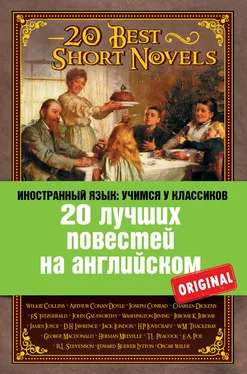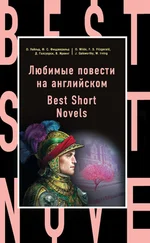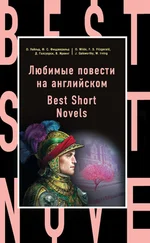It is useless, and the time awfully fails me, to prolong this description; no one has ever suffered such torments, let that suffice; and yet even to these, habit brought – no, not alleviation – but a certain callousness of soul, a certain acquiescence of despair; and my punishment might have gone on for years, but for the last calamity which has now fallen, and which has finally severed me from my own face and nature. My provision of the salt, which had never been renewed since the date of the first experiment, began to run low. I sent out for a fresh supply and mixed the draught; the ebullition followed, and the first change of colour, not the second; I drank it and it was without efficiency. You will learn from Poole how I have had London ransacked; it was in vain; and I am now persuaded that my first supply was impure, and that it was that unknown impurity which lent efficacy to the draught.
About a week has passed, and I am now finishing this statement under the influence of the last of the old powders. This, then, is the last time, short of a miracle, that Henry Jekyll can think his own thoughts or see his own face (now how sadly altered!) in the glass. Nor must I delay too long to bring my writing to an end; for if my narrative has hitherto escaped destruction, it has been by a combination of great prudence and great good luck. Should the throes of change take me in the act of writing it, Hyde will tear it in pieces; but if some time shall have elapsed after I have laid it by, his wonderful selfishness and circumscription to the moment will probably save it once again from the action of his ape-like spite. And indeed the doom that is closing on us both has already changed and crushed him. Half an hour from now, when I shall again and forever reindue that hated personality, I know how I shall sit shuddering and weeping in my chair, or continue, with the most strained and fearstruck ecstasy of listening, to pace up and down this room (my last earthly refuge) and give ear to every sound of menace. Will Hyde die upon the scaffold? or will he find courage to release himself at the last moment? God knows; I am careless; this is my true hour of death, and what is to follow concerns another than myself. Here then, as I lay down the pen and proceed to seal up my confession, I bring the life of that unhappy Henry Jekyll to an end.
William Makepeace Thackeray
Rebecca and Rowena
a Romance Upon Romance
Chapter I
The overture. Commencement of the business
Well-beloved novel-readers and gentle patronesses of romance, assuredly it has often occurred to every one of you, that the books we delight in have very unsatisfactory conclusions, and end quite prematurely with page 320 of the third volume. At that epoch of the history it is well known that the hero is seldom more than thirty years old, and the heroine by consequence some seven or eight years younger; and I would ask any of you whether it is fair to suppose that people after the above age have nothing worthy of note in their lives, and cease to exist as they drive away from Saint George’s, Hanover Square? You, dear young ladies, who get your knowledge of life from the circulating library, may be led to imagine that when the marriage business is done, and Emilia is whisked off in the new travelling-carriage, by the side of the enraptured Earl; or Belinda, breaking away from the tearful embraces of her excellent mother, dries her own lovely eyes upon the throbbing waistcoat of her bridegroom – you may be apt, I say, to suppose that all is over then; that Emilia and the Earl are going to be happy for the rest of their lives in his lordship’s romantic castle in the North, and Belinda and her young clergyman to enjoy uninterrupted bliss in their rose-trellised parsonage in the West of England: but some there be among the novel-reading classes – old experienced folks – who know better than this. Some there be who have been married, and found that they have still something to see and to do, and to suffer mayhap; and that adventures, and pains, and pleasures, and taxes, and sunrises and settings, and the business and joys and griefs of life go on after, as before the nuptial ceremony.
Therefore I say, it is an unfair advantage which the novelist takes of hero and heroine, as of his inexperienced reader, to say good-by to the two former, as soon as ever they are made husband and wife; and I have often wished that additions should be made to all works of fiction which have been brought to abrupt terminations in the manner described; and that we should hear what occurs to the sober married man, as well as to the ardent bachelor; to the matron, as well as to the blushing spinster. And in this respect I admire (and would desire to imitate,) the noble and prolific French author, Alexandre Dumas, who carries his heroes from early youth down to the most venerable old age; and does not let them rest until they are so old, that it is full time the poor fellows should get a little peace and quiet. A hero is much too valuable a gentleman to be put upon the retired list, in the prime and vigor of his youth; and I wish to know what lady among us would like to be put on the shelf, and thought no longer interesting, because she has a family growing up, and is four or five and thirty years of age? I have known ladies at sixty, with hearts as tender and ideas as romantic as any young misses of sixteen. Let us have middle-aged novels then, as well as your extremely juvenile legends: let the young ones be warned that the old folks have a right to be interesting: and that a lady may continue to have a heart, although she is somewhat stouter than she was when a schoolgirl, and a man his feelings, although he gets his hair from Truefitt’s.
Thus I would desire that the biographies of many of our most illustrious personages of romance should be continued by fitting hands, and that they should be heard of, until at least a decent age. – Look at Mr. James’s heroes: they invariably marry young. Look at Mr. Dickens’s: they disappear from the scene when they are mere chits. I trust these authors, who are still alive, will see the propriety of telling us something more about people in whom we took a considerable interest, and who must be at present strong and hearty, and in the fall vigor of health and intellect.
And in the tales of the great Sir Walter (may honor be to his name), I am sure there are a number of people who are untimely carried away from us, and of whom we ought to hear more.
My dear Rebecca, daughter of Isaac of York, has always, in my mind, been one of these; nor can I ever believe that such a woman, so admirable, so tender, so heroic, so beautiful, could disappear altogether before such another woman as Rowena, that vapid, flaxen-headed creature, who is, in my humble opinion, unworthy of Ivanhoe, and unworthy of her place as heroine. Had both of them got their rights, it ever seemed to me that Rebecca would have had the husband, and Rowena would have gone off to a convent and shut herself up, where I, for one, would never have taken the trouble of inquiring for her.
But after all she married Ivanhoe. What is to be done? There is no help for it. There it is in black and white at the end of the third volume of Sir Walter Scott’s chronicler that the couple were joined together in matrimony. And must the Disinherited Knight, whose blood has been fired by the suns of Palestine, and whose heart has been warmed in the company of the tender and beautiful Rebecca, sit down contented for life by the side of such a frigid piece of propriety as that icy, faultless, prim, niminy-piminy Rowena? Forbid it fate, forbid it poetical justice! There is a simple plan for setting matters right, and giving all parties their due, which is here submitted to the novel-reader. Ivanhoe’s history must have had a continuation; and it is this which ensues. I may be wrong in some particulars of the narrative, – as what writer will not be? – but of the main incidents of then history, I have in my own mind no sort of doubt, and confidently submit them to that generous public which likes to see virtue righted, true love rewarded, and the brilliant Fairy descend out of the blazing chariot at the end of the pantomime, and make Harlequin [747]and Columbine [748]happy. What, if reality be not so, gentleman and ladies; and if, after dancing a variety of jigs and antics, and jumping in and out of endless trap-doors and windows through life’s shifting scenes, no fairy comes down to make us comfortable at the close of the performance? Ah! let us give our honest novel-folks the benefit of their position, and not be envious of their good luck.
Читать дальше
Конец ознакомительного отрывка
Купить книгу












